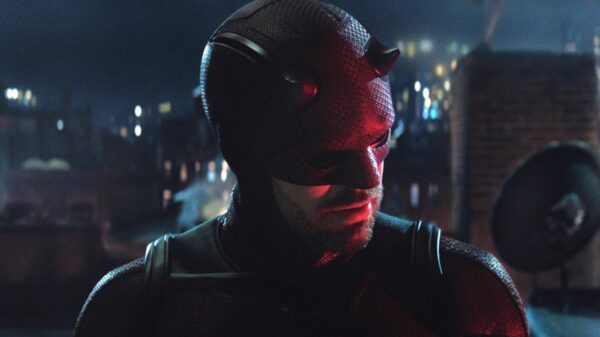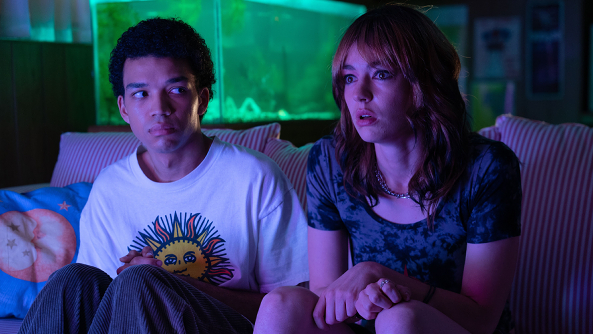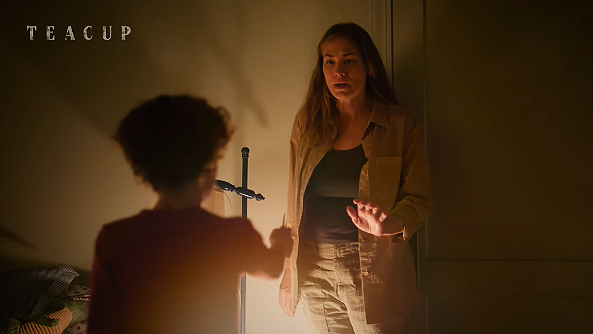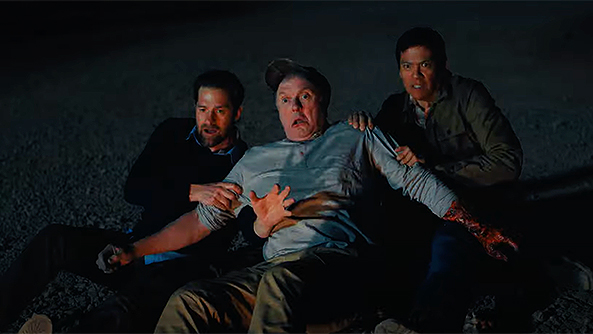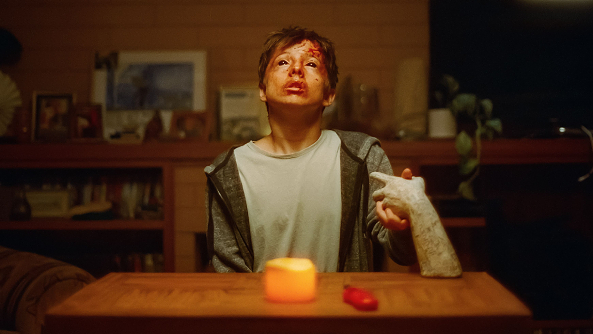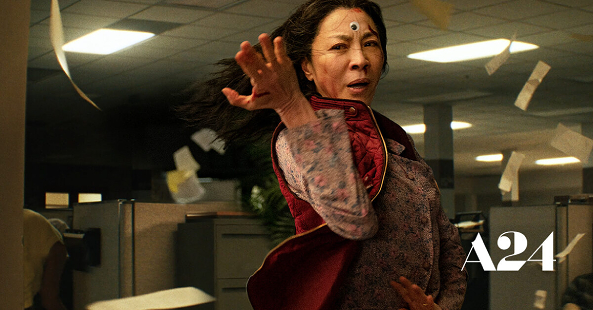A24’s latest original film, I Saw the TV Glow, has now hit digital platforms, and with Pride Month coming to a close, it’s only fitting that we discuss the film from trans nonbinary writer/director Jane Schoenbrun. Since its release, the film’s ending has inspired countless debate and study and for good, albeit depressing, reason. Before we break down the film and its ending, it goes without saying, SPOILER ALERT.
I Saw the TV Glow tells the story of Owen (Justice Smith) and Maddy (Bridgette Lundy-Paine), two awkward 1998 teenagers who bond over their love of the TV series, The Pink Opaque, best described as the A24 equivalent of Buffy the Vampire Slayer. Years after Maddy’s mysterious disappearance, timed with the series’ cancellation, Owen has moved on, until Maddy reappears and explains to him that The Pink Opaque isn’t just a TV show- it’s the reality she and Owen both come from and the world Owen knows is a prison he was put in by the show’s master villain.
At first glance, this idea seems like the ultimate wish fulfillment; what if you were really the main character in your favorite TV show? But what makes it different here is that the two main heroes of the series, Isabel and Tara, are both female and Maddy claims that she is Tara, which makes Owen Isabel. The film even supports this theory by splicing in images of Owen wearing Isabel’s pink dress from the series.
With writer/director Jane Schoenbrun stating in interviews that the film is a queer journey, it’s easy to see what’s going on here. Much like how Lana and Lilly Wachowski explored trans themes in their sci-fi odyssey The Matrix, which ironically wasn’t uncovered until decades later, this film does the same; Owen, like Keanu Reeves’s Neo, is trapped in a reality designed to prevent him from expressing his true self.
But here, the film plays its trump card. Any other film would confirm Maddy’s theory as ironclad fact and end with both of them escaping to the true world of The Pink Opaque. Not this one. Owen rejects Maddy’s crazy theory completely and once again, she disappears from his life, this time for good. Decades later, Owen’s life is a complete dead end; he’s old, tired and haunted by Maddy’s words and will never know if she was telling the truth.
As much of a downer ending as it is, it rings all too true. Thinking about the film as a trans metaphor- it’s not subtle, the trans pride flag colors are pervasive throughout the film- this bleak ending explores the other side of the equation for queer youth. What if we rejected the idea of our true selves? What if we’ll never know how our lives would’ve turned out otherwise? And most tragically, What if that doubt will eat away at us for the rest of our lives?
RELATED | “Everything Everywhere All at Once” Review: So Crazy, It Just Might Work
The film never confirms Maddy’s theory and it could very well be an insane fable as Owen believes it to be. Right down to the fact that when Owen rewatches The Pink Opaque as an adult, it’s nothing like what he remembers and he feels embarrassed for ever having loved it as much as he did. Sadly, it could also be a sign of Owen’s mind rejecting the idea that Maddy was right all along. Regardless, the change of the series is a testament to the power of fiction and how it can warp our identities and our views; The Pink Opaque may have always been a 90s cheese fest and Owen and Maddy elevated it in their minds as the world they wanted to live in rather than the world they do.
More importantly, Owen will forever be haunted by the fear that he made the wrong choice. Unlike most trans people who go through with accepting and understanding their true identity, Owen shuts the idea that he could be a woman in another world out of his mind. No, I can’t be a girl. It’s too crazy. I’m happy as is. But the bleak future he ends up in proves otherwise. What would’ve happened if he went with Maddy? He’ll never know. We’ll never know. Roll credits. Depressing, huh?
I Saw the TV Glow explores queer and trans themes, sure, but the way it does so will likely leave a bad taste in viewers’ mouths. Which is the point. For everyone who embraces who they really are, there are sadly many more who reject their inner desires and needs. The wish fulfillment element of the narrative also has a dark side, as it shows what happens if the wish never comes true.
I Saw the TV Glow is now available on all digital platforms.



